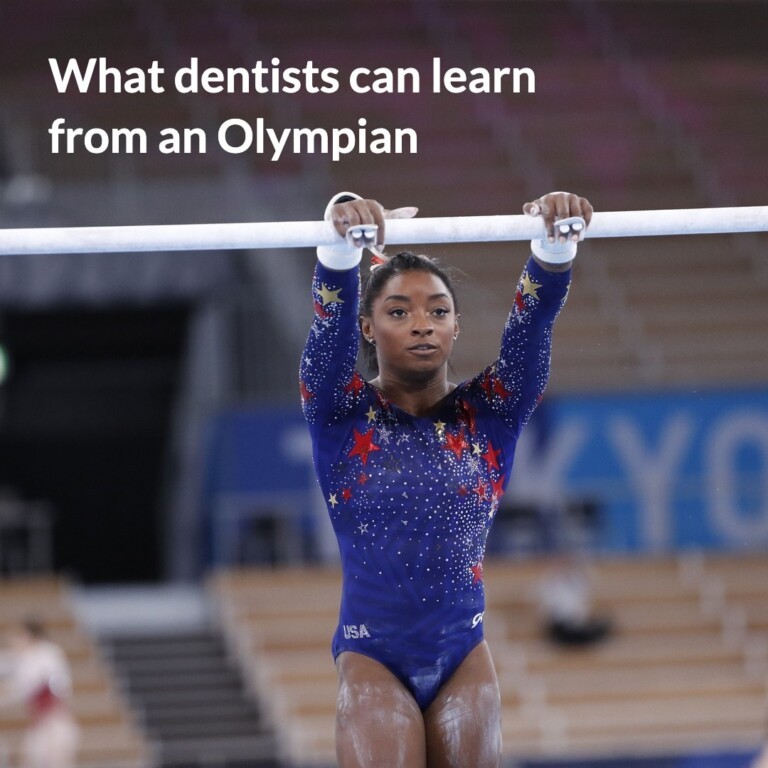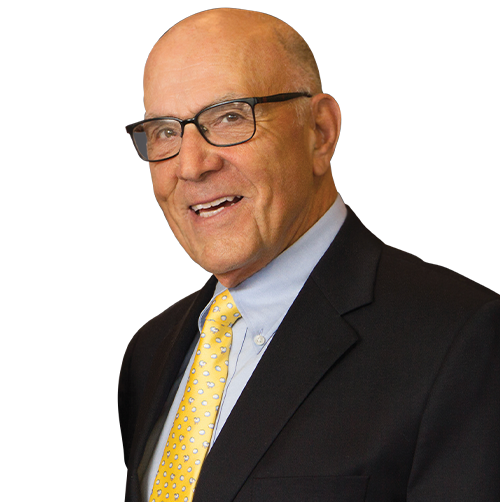A spotlight on mental health in dentistry
Simone Biles bowed out of the 2021 Olympics citing a phenomenon known as the “twisties.” Simply put, twisties occur when the body and brain lose spatial orientation when attempting a move, or in the middle of a move. This is extremely dangerous, and can lead to serious injury because the gymnast loses the ability to know when to land, how to rotate, where the floor is, and when to stop.
Dentistry and Mental Health
Dentists notoriously have some of the highest suicide rates among healthcare professionals. Many factors are in play, and the why is mostly speculation, but in peeling back the layers, previously openly discussing mental health was completely taboo. Stress management tools and coping mechanisms are typically not taught or emphasized in dental school or private practice.
Seeking professional help for the first time can feel like a daunting task. All the negative thoughts and questions buzz through our brains: If mental health is considered a weakness why would anyone openly talk about this? Where to begin? Who do I ask for help? Are patients going to find a new dentist because they know I am seeing a therapist?” The stigma behind mental health only exacerbates the fear to seek help or take a pause.
Dentistry is a unique field in healthcare because as small business operators, not only are our hand skills critical to the success of the business, but so are our minds. We are tasked with knowing the ins and outs of dental insurance, billing, team leadership, and ALSO keeping our dental expertise up to date with new technology, physically honing our hand-skills, and verbally communicating treatment in words that patients can understand and trust.
The balancing act is honestly overwhelming. No wonder many dentists suffer from low-level depression, anxiety, and “burnout.”
Here is what Simone Biles did NOT do.
Biles was able to recognize the disconnect between her mind and body, and made the very difficult decision to pull out of multiple events and focus on herself and her mental health. Sometimes the most difficult part about allowing space or enforcing boundaries for our mental health, is the ability to speak up and verbalize what we need.
Her decision spurred controversy and many opinions flooded news outlets and social media. Amazingly, Biles still showed up in support of her teammates in their other events. She eventually returned to the beam competition and took home the bronze medal. She did not stop, and she did not give up.
Here is what dentists can learn.
While we might not be the next Simone Biles, we might not be gold medal Olympians, we ARE golden to our team, patients, and our families. A lot of people depend on us, but also what we need to remind ourselves is that…a lot of people support us and our dreams. The pressure that we place on ourselves is sometimes more than what others or society places on us. If we do not have our minds intact, the physical ability of our bodies to perform is LITERALLY useless. As a result of taking care of ourselves, we can also help support other’s goals. Just as taking space for our own mental or physical health is important, so is lending space for others around us to do the same.
You do not need to be a top tier leader, speaker or educator to suffer from mental health issues. Comparison, self drive, and motivation to be successful might have paved the way to success, but they can also have detrimental consequences to our mental state of well-being. Studies have shown time and time again that dentists tend to have a “type A” personality. It is only natural that we are more prone to anxiety and depression as compared to other healthcare workers.
Just because we “can” do something does not mean we should. Taking time off, creating space, and letting go of tasks or duties is not quitting. There is so much power in saying no, and prioritizing our time.
And that is what olympian Simone Biles showed us.
Signs dentists should look for in themselves and their peers:
- Changes in behavior,
- Lack of appetite,
- Irritability and
- Loss of interest in activities that were once enjoyed.
All are signs of depression according to the American Psychiatric Association.
Do not be afraid to ask for help, take a pause, or create boundaries for yourself and your mental health. This is the most courageous decision we can make as dentists, business owners, and leaders in our community. Please help normalize mental health and supporting each other in our profession, especially during these unprecedented times.
Sources and Resources:
American Psychiatric Association
National Public Radio




